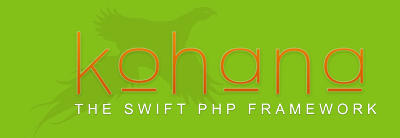
| Status | Draft |
|---|---|
| Todo | Fill ending methods - verify unshift_assoc example - review to_object method |
Array Helper
The Array helper assists in transforming arrays. Warning, in order to use it, class name is 'arr' instead of 'array'.
Methods
rotate()
'rotate' rotates an array (two-dimensional) matrix clockwise. Example, turns a 2×3 array into a 3×2 array.
The two arguments are:
- [array] The array you want to rotate
- [boolean] Do you want to keep the same keys in the rotated array? – TRUE by default
Example:
// Please note that the print() statements are for display only $optical_discs = array ( 'CD' => array('700', '780'), 'DVD' => array('4700','650'), 'BD' => array('25000','405') ); print Kohana::debug($optical_discs); $optical_discs = arr::rotate($optical_discs, FALSE); print ('<br /><br />'); print Kohana::debug($optical_discs);
It will result in HTML as:
Array
(
[CD] => Array
(
[0] => 700
[1] => 780
)
[DVD] => Array
(
[0] => 4700
[1] => 650
)
[BD] => Array
(
[0] => 25000
[1] => 405
)
)
Array
(
[0] => Array
(
[CD] => 700
[DVD] => 4700
[BD] => 25000
)
[1] => Array
(
[CD] => 780
[DVD] => 650
[BD] => 405
)
)
remove()
'remove' removes a key from an array and returns it.
The two arguments are:
- [string] The key you want removed from an array
- [array] The array you want the key to be removed from
Example:
// Please note that the print() statements are for display only $optical_discs = array ( 'CD' => array('700', '780'), 'DVD' => array('4700','650'), 'BD' => array('25000','405') ); print Kohana::debug($optical_discs); $cd = arr::remove('CD', $optical_discs); print ('<br />'); print Kohana::debug($cd); print ('<br />'); print Kohana::debug($optical_discs);
It will result in HTML as:
Array
(
[CD] => Array
(
[0] => 700
[1] => 780
)
[DVD] => Array
(
[0] => 4700
[1] => 650
)
[BD] => Array
(
[0] => 25000
[1] => 405
)
)
Array
(
[0] => 700
[1] => 780
)
Array
(
[DVD] => Array
(
[0] => 4700
[1] => 650
)
[BD] => Array
(
[0] => 25000
[1] => 405
)
)
extract()
'extract' extract ones or more keys from an array. Keys that do not exist in the search array will be NULL in the extracted data.
The two arguments are:
- [array] The array you want the key to be extracted from
- [string] The key you want extracted from an array
Example:
$optical_discs = array ( 'CD' => array('700', '780'), 'DVD' => array('4700','650'), 'BD' => array('25000','405') ); $optical_discs = arr::extract($optical_discs, 'DVD', 'Bluray'); echo Kohana::debug($optical_discs);
Output:
(array) Array ( [DVD] => Array ( [0] => 4700 [1] => 650 ) [Bluray] => //NULL )
binary_search()
'binary_search' performs a basic binary search on an array. By default, it returns the key of the array value it finds. The four arguments are:
- [mixed] The value you want to find.
- [array] The sorted array you want to search in
- [boolean] Return the nearest value, or simply return FALSE (the default)
- [boolean] Sort the array before searching
Example:
$my_array = array('10', '20', '30', '50', '80'); echo arr::binary_search('50', $my_array); // 3 echo arr::binary_search('45', $my_array); // FALSE (not found) echo arr::binary_search('45', $my_array, TRUE); // 3 echo arr::binary_search('35', $my_array, TRUE); // 2
range()
'range' fills an array with a range of numbers.
The two arguments are:
- [integer] Stepping
- [integer] Ending Number
Example:
echo Kohana::debug(arr::range(17, 150));
Output:
(array) Array ( [17] => 17 [34] => 34 [51] => 51 [68] => 68 [85] => 85 [102] => 102 [119] => 119 [136] => 136 )
merge()
Emulates array_merge_recursive, but appends numeric keys and replaces associative keys, instead of appending all keys. It takes:
- [array] any number of arrays
- returns [array] the merged array
Example:
echo Kohana::debug(arr::merge(array('a', 'b'), array('c', 'd'), array('e' => array('f', 'g'))));
It will result as:
(array) Array ( [0] => a [1] => b [2] => c [3] => d [e] => Array ( [0] => f [1] => g ) )
overwrite()
'overwrite' overwrites an array with values from input array(s). Note that non-existing keys will not be appended. It takes:
- [array] key array
- [array] input array(s) that will overwrite key array values
Example:
$array1 = array('fruit1' => 'apple', 'fruit2' => 'mango', 'fruit3' => 'pineapple'); $array2 = array('fruit1' => 'strawberry', 'fruit4' => 'coconut'); print Kohana::debug(arr::overwrite($array1, $array2));
Output:
(array) Array ( [fruit1] => strawberry [fruit2] => mango [fruit3] => pineapple )
map_recursive()
map_recursive($callback, array $array) has been created because PHP does not have this function, and array_walk_recursive creates references in arrays and is not truly recursive. It takes:
- [array]
$callbacka valid callback to apply to each member of the array - [array]
$arrayarray to map to - returns [array] the mapped array
Example :
public function add($value){ return $value + 1; } echo Kohana::debug(arr::map_recursive(array($this, 'add'), array('a' => 1, 'b' => 2, 'c' => array(3, 4), 'd' => array('e' => 5))));
It will result as:
(array) Array ( [a] => 2 [b] => 3 [c] => Array ( [0] => 4 [1] => 5 ) [d] => Array ( [e] => 6 ) )
unshift_assoc()
unshift_assoc has been created because PHP does not have this function. It just unshift an association in an associative array. It takes:
- [array] array to unshift
- [string] key to unshift
- [mixed] value to unshift
Example
$fruits = array('fruit1' => 'apple', 'fruit2' => 'mango', 'fruit3' => 'pineapple'); arr::unshift_assoc($fruits, 'fruit1', 'strawberry'); print Kohana::debug($fruits);
Output
(array) Array ( [fruit1] => strawberry [fruit2] => mango [fruit3] => pineapple )
to_object()
to_object(array $array, $class = 'stdClass') converts an array to an object. This method supports multi level arrays. It takes:
- [array] $array array to convert
- [string] $class the base class (default 'stdClass')
Note: For 1-level arrays, use Typecasting $object = (object) $array;
Example
$array = arr::to_object(array('test' => 13)); print $array ->test; print Kohana::debug($array);
Output
13 (object) stdClass Object ( [test] => 13 )